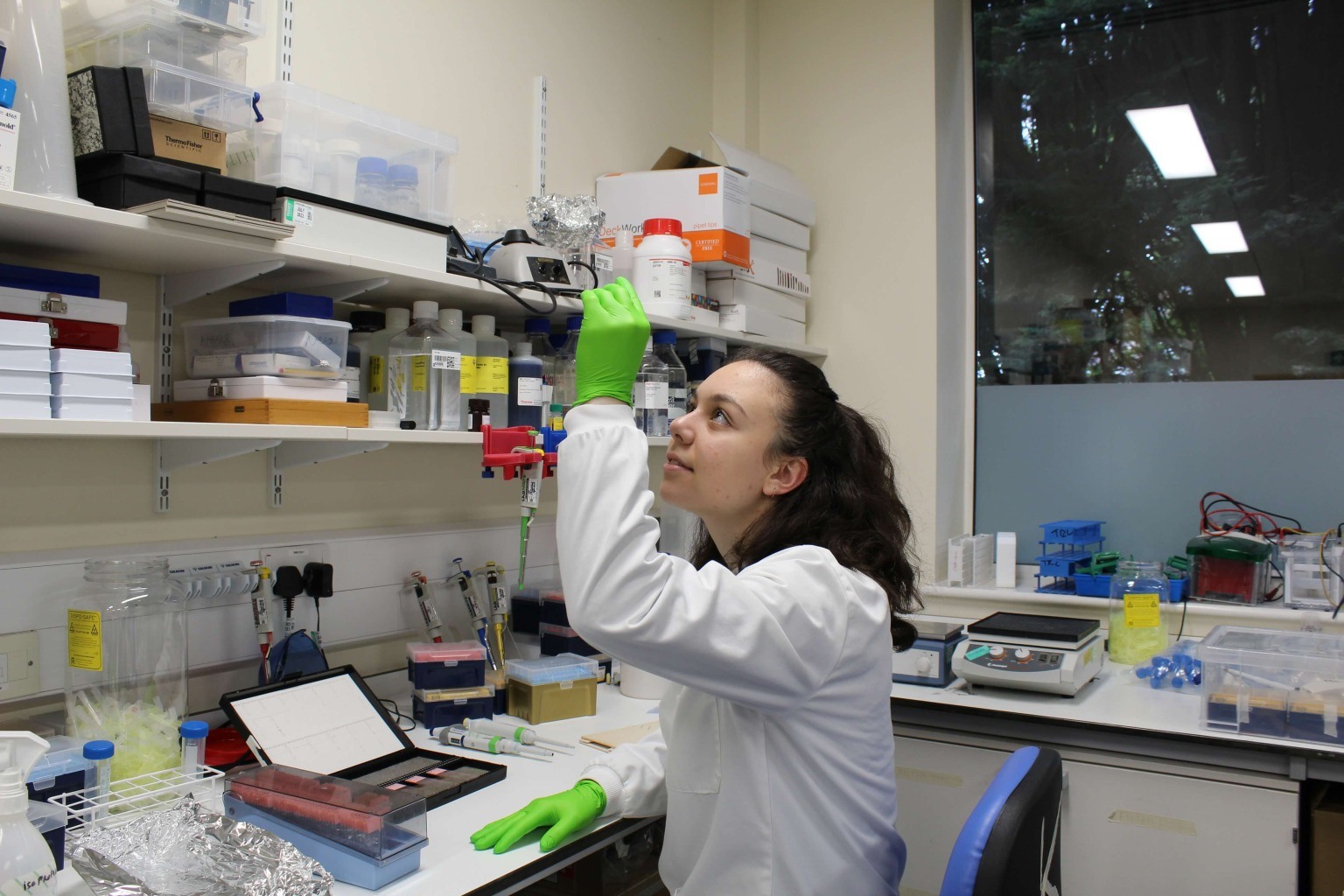
Celebrating the International Week of Science and Peace
Tatiana Charikleia Styliari

In this new series in our magazine, Science of Everyday Life, we explore the science behind every day but often puzzling phenomena, starting with something many of us have experienced: brain fog.
We have all been there, staring blankly at a screen, rereading the same sentence multiple times, or walking into a room only to forget why. This mental haze is commonly referred to as brain fog. But what exactly is it, and why does it occur, even when we are not sick?
Although not a clinical diagnosis, the term brain fog has become a popular way to describe temporary cognitive dysfunction. It typically affects attention, memory, processing speed, and mental clarity, and can result from a range of everyday factors. People often describe it as feeling mentally “cloudy,” slow, or forgetful, like their brain is not functioning at full capacity [1].
What Happens in the Brain?
Brain fog is thought to involve imbalance in neurotransmitters, fluctuations in hormone levels, or disruptions in the brain’s energy metabolism. These physiological changes affect key brain regions, including the prefrontal cortex, which is responsible for attention and decision-making; the hippocampus, which plays a crucial role in memory formation and the thalamus, which acts as a center for sensory and cognitive signals [1]. Recent research into post-COVID brain fog has added new insight into how this phenomenon might arise. It appears that the virus can continue to impact the body by altering the microbiome even after respiratory symptoms have resolved. This disruption may lead to reduced production of serotonin, resulting in a mental fogginess [2,4].
To better understand what might go wrong during brain fog, it is helpful to look at how cognitive function normally works. Cognitive function includes all the mental processes that allow us to perceive, learn, remember, and make decisions. A major component of this is executive function, which allows us to regulate behavior, plan, and adapt to new situations. Executive function includes several interrelated abilities. These abilities are related to focus, adapt, and manage tasks by supporting attention, memory, and self-control. Planning, solving problems, and regulating emotions are also involved in these abilities [3].
These functions are coordinated by different areas of the brain, especially within the frontal cortex. Outside of the cortex, the thalamus plays a central role by processing sensory input and relaying it to other brain regions. It also receives feedback from the cortex and redistributes that information across the brain. Just beneath the thalamus lies the hypothalamus, which connects brain function with bodily states by helping to regulate temperature, metabolism, hunger, and hormone release. The thalamus also communicates with the cerebellum, associated with motor coordination, but also associated to attention and language processing. Although the brainstem is not directly involved in executive function, it maintains vital processes such as breathing and heart rate and is closely linked to consciousness through its connections with other cognitive centers [5].
Understanding brain fog means understanding how delicate and interconnected these systems are. When even one part of this network is disrupted, by illness, stress, poor sleep, or nutritional imbalance, our cognitive clarity can be influenced. The good news is that in many cases, brain fog is temporary and can be managed by addressing its underlying causes.
References:
[1] McWhirter L, Smyth H, Hoeritzauer I, Couturier A, Stone J, Carson AJ. What is brain fog? J Neurol Neurosurg Psychiatry. 2023 Apr;94(4):321-325. doi: 10.1136/jnnp-2022-329683. Epub 2022 Dec 6. PMID: 36600580.
[2] American Medical Association. What doctors wish patients knew about long COVID-19 brain fog (https://www.ama-assn.org/delivering-care/public-health/what-doctors-wish-patients-knew-about-long-covid-19-brain-fog). Last updated 2/17/2023. Accessed 5/3/2024.
[3] Kverno K. Brain Fog: A Bit of Clarity Regarding Etiology, Prognosis, and Treatment (https://pubmed.ncbi.nlm.nih.gov/34714198/). J Psychosoc Nurs Ment Health Serv. 2021 Nov;59(11):9-13. Accessed 5/3/2024.
[4] National Institutes of Health (U.S.). Shining a Light on Long COVID Brain Fog (https://covid19.nih.gov/news-and-stories/shining-light-long-covid-brain-fog). Last updated 12/2023. Accessed 5/3/2024.
[5] Hall, Catherine N. "Exploring the Brain: A Tour of the Structures and Cells of the Nervous System." Introduction to Biological Psychology, University of Sussex Library, 2023.

Tatiana Charikleia Styliari


Katerina Britzolaki

Alexandra Bekiaridou